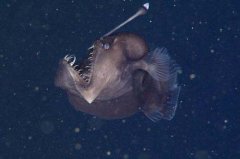Summer holidays
是 in a summer holidays 请看以下您就会知道in on at 是怎用的; 一. in
on在方位名词前的区别 1. in表示A地在B地范围之内。如: Taiwan is in the southeast of China. 2. on表示A地与B地接壤、毗邻。如: North Korea is on the east of China. 二. at
in
on在表示时间上的区别 1. at指时程表示: (1)时间的一点、时刻等。如: They came home at sunrise (at noon
at midnight
at ten o’clock
at daybreak
at dawn). (2)较短暂的一段时间。可指某个节日或被认为是一年中标志大事的日子。如: He went home at Christmas (at New Year
at the Spring Festival
at night). 2. in指时程表示: (1)在某个较长的时间(如世纪、朝代、年、月、季节以及泛指的上午、下午或傍晚等)内。如: in 2004
in March
in spring
in the morning
in the evening
etc (2)在一段时间之后。一般情况下,用于将来时,谓语动词为瞬间动词,意为「在......以后」。如: He will arrive in o hours. 谓语动词为延续性动词时,in意为「在......以内」。如: These products will be produced in a month. 注意:after用于将来时间也指一段时间之后,但其后的时间是「一点」,而不是「一段」。如: He will arrive after o o’clock. 3. on指时程表示: (1)具体的时日和一个特定的时间,如某日、某节日、星期几等。如: On Christmas Day(On May 4th)
there will be a celebration. (2)在某个特定的早晨、下午或晚上。如: He arrived at 10 o’clock on the night of the 5th. (3)准时,按时。如: If the train should be on time
I should reach home before dark. 三. at
in和on表示地点时的区别 1. at表示地点: (1)用于指较小的地方。如: I shall wait for you at the station. (2)用于门牌号码前。如: He lives at 115 Zhongshan Road. 2. in表示地点: (1)用于指较大的地方。如: He lives in Shanghai. (2)虽然是很小的地方,如果说话人住在那里,也可用in。商店、学校、机关等,若看作一个地点(point)用at,若看作一个场所(place)用in。如: I met him at the post-office. I’m now working in the post-office. 3. on表示地点,一般指与面或线接触,意为「在......上;在......旁」。如: The picture was hanging on the wall. New York is on the Hudson River.
Summerday和Summersun的区别?
summer holiday和summer holidays都是暑假的意思,他们是同义词,只是holiday的词语用法不同。
1、holidays的词语用法:
holiday的基本意思是“假期”,指源于宗教的“节日,假日”,也可指不用去上班、上学等的“休假日”“假期”,还可指“出外度假时期”。其单数形式指包括含一天或一次的假期,复数形式指一次以上或一天以上的假期。
holiday作“休假期”解时常用于复数形式,是英国用法。holidays如作整体看待,可作单数处理。
2、summer holidays【双语例句】
(1)、The students love camping out in summer holidays. 学生们喜欢在暑假中去露营。
(2)、If over the course of an entire year you read one novel a month, I'd guess that you could probablyfit in one extra as well (perhaps during the summer holidays).
可是如果在整整的一年里,您一个月读一本新的小说,我就会推测您或许也会从中取得一个额外收获(也许正是在暑假期间)
3、summer holiday【双语例句】
We can go there this summer holiday.
我们可以这个暑假去那里。
4、holidays 【读音】 英['hɒlɪdɪs] 美['hɒləˌdeɪz]
n. 假日 ,名词holiday的复数形式.
5、 holidays的双语例句
(1)、Bad weather ruined our holidays.坏天气把我们的假日全给搅了。
(2)、Generally speaking, the parks are full on holidays.
一般来说,假日里公园都挤满人。
summer holiday
I had a good summer holiday this year.
今年,我过了一个愉快的暑假
My families planned to go to somewhere near water for many months.
我的家人已经计划了几个月,要去靠近海啊河啊的地方度假
With my summer holiday coing, we became very happy.
假期来了,我很高兴.
At last, it came.
最后,真的放假了
We chose Dalian as our destination, and then we began to prepare.
我们选择了大连作目的地,我们就开始准备.
I bought some delicious food and drinks, my mother prepared a big plastic paper, my father borrowed a car from his friend.
我买了美味的食品和饮料,我妈准备了一张大的塑料纸,我爸从他朋友那借了辆车.
Everything is ready, after listening to the weather report, we went to Dalian. My father drived. I think he is a good driver.
万事俱备,听了天气预报,我们就出发去大连.我觉得爸爸是个好司机.
I often saw outside, many trees and buildings seem to run behind, it was very intersting and made us so happy.
我常常看窗外的风景,书啊楼房啊好象快速向后退,真有趣,这让我们很开心.
Some hours later, we arrived. Wow, the seaside was so beautiful! I saw the sea! The water was blue. Many people were playing there. Many children like me were playing ball. Everyone there was so happy!
过了几个小时,我们就到了.哇,海边真美啊.我终于看到海了.水是蓝的,好多人在那戏水.许多像我一样的小孩在那玩球.每个人都那么开心.
We swam in the water, enjoying the warm of the sun. I thought that life was so good!
我们在海里游泳,享受着温暖的阳光,我觉得生活真美好啊.
After swimming, we eat some seafood. They were so delicious!
游完泳,我们去吃了海鲜,真鲜美啊.
Time past so fast, we had to go home soon.
时间过得真快,我们不得不回家了.
That is very important in my holiday.I like it.
对于我的假期来说,这事意义重大,我喜欢.
Of course. I also did many other things like reading some books, playing with my friends, watching films with my family,doing my homework and so on.
当然,我还做了其他事,阅读啦,和朋友玩啦,和家人看电影啦,做作业等等.
I like my summer holiday, and I hope I will have another like that in the future.
我喜欢这个暑假,我希望以后也能有这样开心的假期.


